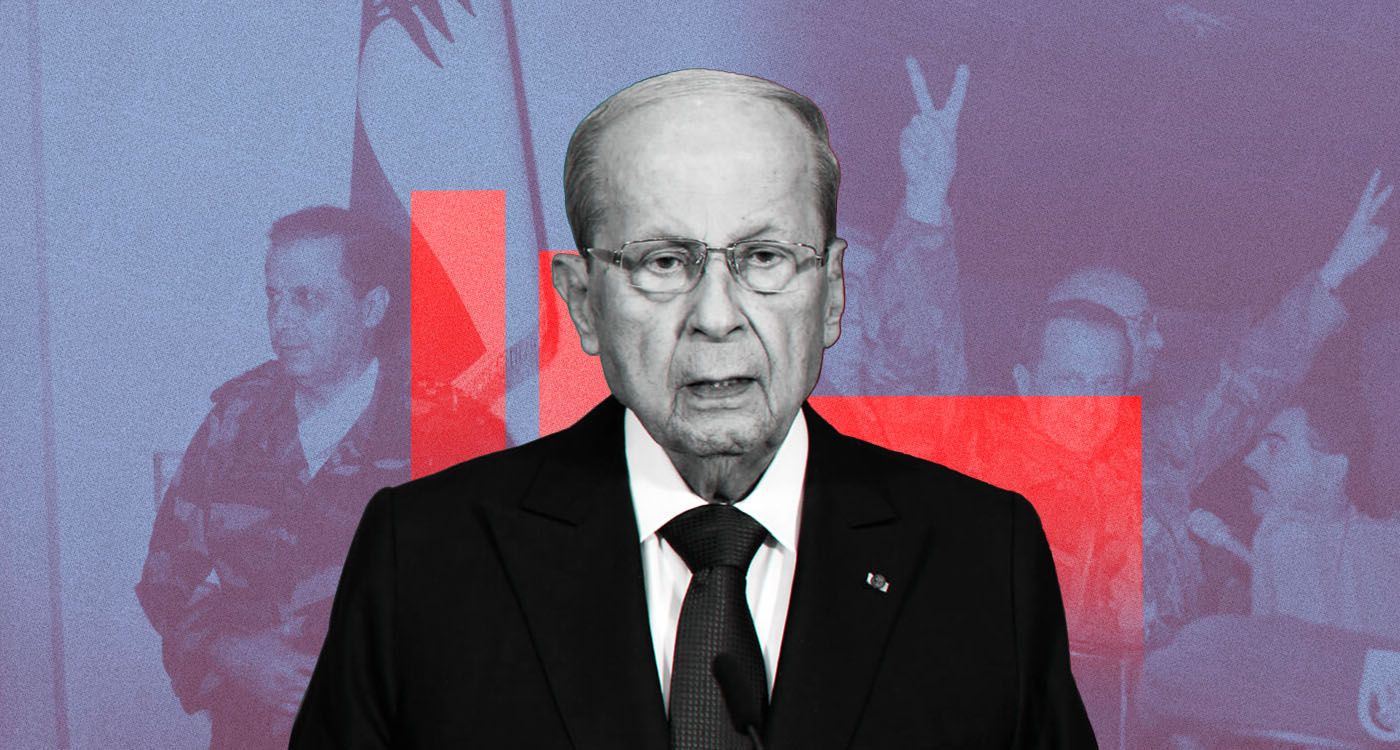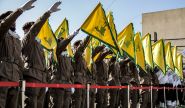
In the tragic annals of Lebanese history, Michel Aoun’s presidency stands out not merely as a disappointment but as a catastrophe of Shakespearean proportions. The man who once promised to rid Lebanon of Syrian influence and champion sovereignty ended his career as the very embodiment of everything he claimed to oppose. To understand how Aoun’s presidency led Lebanon into the abyss, one must examine his betrayal of principles, alliances with malign actors and the subsequent unraveling of the Lebanese state.
Michel Aoun rose to prominence in the late 1980s as a self-styled defender of Lebanese independence. As a general, he launched the so-called “War of Liberation” against Syrian forces, portraying himself as a hero standing against occupation. Yet, in October 1990, as Syrian tanks overran Baabda Palace, Aoun fled Lebanon ignominiously in his pajamas, after he stated that he will be the last one standing, yet he fled, leaving his troops and supporters to face their fate. This moment of cowardice would foreshadow his future betrayals.
In 2005, after returning from exile in France, Aoun shocked his followers by signing a Memorandum of Understanding with Hezbollah, the very proxy of Syrian and Iranian influence in Lebanon. This came as a shock, especially that noun stated from Paris that he was against Hezbollah’s arsenal as a separate militant state. Things later on shifted. This Faustian bargain was driven by Aoun’s insatiable ambition for the presidency, a position he would secure in 2016 through a controversial political deal. By aligning with Hezbollah and tacitly supporting the Assad regime, Aoun abandoned the ideals of sovereignty and independence that had defined his earlier career.
Aoun’s alliance with Hezbollah proved disastrous for Lebanon. Under his presidency, Hezbollah’s dominance in political and security affairs expanded unchecked. The group’s involvement in the Syrian Civil War further embroiled Lebanon in regional conflicts, exacerbating sectarian tensions and drawing the ire of Western and Gulf nations, resulting in pulling all current and future investments from Lebanon.
Moreover, Aoun’s tacit support for the Assad regime — a regime responsible for some of the worst human rights abuses in modern history — tarnished Lebanon’s international standing. Recent revelations about the atrocities in Syrian prisons, where thousands of detainees suffered torture and death, serve as a chilling reminder of the regime Aoun chose to align with. These choices isolated Lebanon diplomatically, cutting off vital financial aid and investment at a time when the country was already teetering on the edge.
Aoun’s tenure was marked by unprecedented crises. The 2019 economic collapse, the worst in Lebanon’s history, saw the Lebanese pound lose over 90% of its value, plunging millions into poverty. Basic services, from electricity to healthcare, became luxuries. Corruption and incompetence — hallmarks of the political elite that Aoun joined rather than reformed — saw Lebanon’s state institutions crumble.
The Beirut port explosion in August 2020, which killed over 200 people and devastated the capital, epitomized the failure of Aoun’s administration. Despite warnings about the explosive materials stored at the port, his government took no action. In the aftermath, Aoun’s detached response — “I don’t have authority over the port” — infuriated a grieving nation.
The current revelations about Syrian prisons are a grim reminder of the stakes involved in Aoun’s alliances. Thousands of Lebanese disappeared into Assad’s dungeons during the Syrian occupation, their fate unknown to this day even when we saw dozens of Lebanese prisoners released after 40 and 30 years, there’s still a lot to unveil in this matter. By aligning with Hezbollah and supporting Assad, Aoun turned a blind eye to these atrocities, compounding the suffering of victims and their families. When he was asked about the prisoners, he said there are no prisoners from his time detained, as if the rest of the Lebanese are not worthy of making a deal for their freedom.
It’s a breathtaking contradiction: Hezbollah, the “Party of God,” adorned with divine imagery, aligned with the godless and brutal Syrian regime — a regime whose prisons are chambers of unspeakable horror. Reports of rape, burning bodies and medieval torture devices paint a picture of suffering unparalleled in modern history. Yet, Hezbollah decries Israeli prisons, where inmates like Samir Kuntar earned PhDs. The irony is staggering: a party claiming moral authority partners with torturers, while its supposed enemy offers its prisoners education. The hypocrisy could not be more glaring.
As Syria’s regime faces renewed scrutiny, Aoun’s role in enabling its crimes cannot be overlooked. His presidency not only failed to address the legacy of Syrian occupation but also entrenched its influence in Lebanon’s political system. The results are evident in the country’s economic collapse, social fragmentation and loss of sovereignty.
It’s almost poetic, isn’t it? Samir Geagea, the militant warlord who once clashed with Michel Aoun in a bloody power struggle, is now seen as a man of unwavering principles and a hero by much of Lebanon. Meanwhile, Aoun, the self-proclaimed defender of the state who fought the Syrians in uniform, transformed into the very antithesis of leadership — a figure synonymous with betrayal and failure. The irony writes itself: the warrior became a statesman, and the general became a cautionary tale.
Michel Aoun’s presidency will be remembered as a cautionary tale of ambition over principle. The man who once promised to liberate Lebanon instead shackled it to foreign powers and internal decay. Today, as Lebanon grapples with the consequences of his alliances and policies, the need for genuine leadership has never been greater. Aoun’s legacy is a stark reminder that the pursuit of power, when divorced from values, can lead a nation straight to hell.



Comments